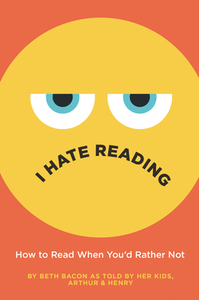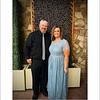Take a photo of a barcode or cover
funny
inspiring
lighthearted
fast-paced
Reminded me of The Book With No Pictures- but for upper elementary readers! It definitely demonstrates how quickly twenty minutes could fly by if you commit to reading. Hope it encourages all sorts of readers to pursue more opportunities to read or even open a book!
I grabbed this book because I have a child who is reluctant to read. He saw me reading it and giggling and asked to read it after I was done.
A book with tips and tricks on how to read for 20 min every day, as told by the author's kids. Funny.
this is a very tricky book.. it tricks you into reading a book even if you hate reading.
This book might be better cataloged as humor rather than having a call number for reading & books. Nevertheless, a young person struggling with reading, who searches for tips to get them through it, will find it and it will bring some relief - not because it will end their struggle, but because they will know they aren't the only one.
It has some excellent ideas! It gives several suggestions about how to believably pretend to read that are likely to succeed in getting people to leave you alone and could accidentally end up in you reading.
Yet, sadly, it is missing some other excellent (and obvious) ideas that might actually help a non-reader become a reader.
For example, one tactic that I figured out accidentally; if you can't or don't want to read a book, ask someone else who did read it to tell you something about it. If they say they *loved* it, ask what part they liked best. If they say it was exciting, ask them what part was most exciting, etc. When someone else predigests a book & presents the best parts, it will either motivate you to read it yourself, or you'll know exactly why you shouldn't waste your time. I do this quite often with young people in the library - because I can't read every book, and I don't have exactly the same reading tastes as every reader, but I've been persuaded, plenty of times!
(The fact that Beth, Arthur, & Henry wanted to either distract, pester, or harm the kids at school who like reading created an "us-them" dynamic that seemed to me to be a really bad idea for everyone. Lashing out at people who mean no harm is not right. It's the adults putting pressure on kids that causes them pain, not the people who really just want to be left alone to read, right?)
So, I am still thinking of alternative strategies that were not mentioned!
There is the obvious technique of reading only the first few pages & the last few pages, and checking to see if you care how it got from point A to point Z. (This horrifies some people, but if you have ever read a book & then enjoyed watching the movie version, or vice-versa, you know that "spoilers" are not the worst thing in the world.)
Another one I use often at work; Open a book to the exact middle, read 3 pages, and if you care at all, start at the beginning.
The Bacons narrowly missed - by *almost* suggesting this; Get a book with LOTS of pictures, and just guess what the words might say. Every once in a while, check to see if you were right. If you are always right, don't read anymore, and if you are wrong & it kind of fascinates you...
In the Bacon family's book, when a teacher asks (quite accusingly) "Are you just reading the pictures?" the appropriate response is "One picture is worth a thousand words. Of course I'm reading the pictures!"
Anyway, this book *is* funny, and it's probably more funny if a reading teacher or librarian reads it to you, because then everyone can laugh about how it's totally okay to *not* love reading. There's so much pressure on kids to succeed at reading, and maybe not quite enough attention paid to what the non-reader needs or wants. Certainly they deserve the self-respect gained from knowing that Arthur and Henry don't really want to read.
It has some excellent ideas! It gives several suggestions about how to believably pretend to read that are likely to succeed in getting people to leave you alone and could accidentally end up in you reading.
Yet, sadly, it is missing some other excellent (and obvious) ideas that might actually help a non-reader become a reader.
For example, one tactic that I figured out accidentally; if you can't or don't want to read a book, ask someone else who did read it to tell you something about it. If they say they *loved* it, ask what part they liked best. If they say it was exciting, ask them what part was most exciting, etc. When someone else predigests a book & presents the best parts, it will either motivate you to read it yourself, or you'll know exactly why you shouldn't waste your time. I do this quite often with young people in the library - because I can't read every book, and I don't have exactly the same reading tastes as every reader, but I've been persuaded, plenty of times!
(The fact that Beth, Arthur, & Henry wanted to either distract, pester, or harm the kids at school who like reading created an "us-them" dynamic that seemed to me to be a really bad idea for everyone. Lashing out at people who mean no harm is not right. It's the adults putting pressure on kids that causes them pain, not the people who really just want to be left alone to read, right?)
So, I am still thinking of alternative strategies that were not mentioned!
There is the obvious technique of reading only the first few pages & the last few pages, and checking to see if you care how it got from point A to point Z. (This horrifies some people, but if you have ever read a book & then enjoyed watching the movie version, or vice-versa, you know that "spoilers" are not the worst thing in the world.)
Another one I use often at work; Open a book to the exact middle, read 3 pages, and if you care at all, start at the beginning.
The Bacons narrowly missed - by *almost* suggesting this; Get a book with LOTS of pictures, and just guess what the words might say. Every once in a while, check to see if you were right. If you are always right, don't read anymore, and if you are wrong & it kind of fascinates you...
In the Bacon family's book, when a teacher asks (quite accusingly) "Are you just reading the pictures?" the appropriate response is "One picture is worth a thousand words. Of course I'm reading the pictures!"
Anyway, this book *is* funny, and it's probably more funny if a reading teacher or librarian reads it to you, because then everyone can laugh about how it's totally okay to *not* love reading. There's so much pressure on kids to succeed at reading, and maybe not quite enough attention paid to what the non-reader needs or wants. Certainly they deserve the self-respect gained from knowing that Arthur and Henry don't really want to read.
A laugh out loud book about how you can get away with not really reading.
Great for kids who really don't like reading but kind of HAVE to do it, this one might be just funny enough, filled with just enough crazy but workable tips that kids will actually want to read something else as well.
It looks like a chapter book but has the word set up of a picture book - no pictures though because it's supposed to get you reading even if it's the tiniest amount.
Great for kids who really don't like reading but kind of HAVE to do it, this one might be just funny enough, filled with just enough crazy but workable tips that kids will actually want to read something else as well.
It looks like a chapter book but has the word set up of a picture book - no pictures though because it's supposed to get you reading even if it's the tiniest amount.
funny
lighthearted
fast-paced







